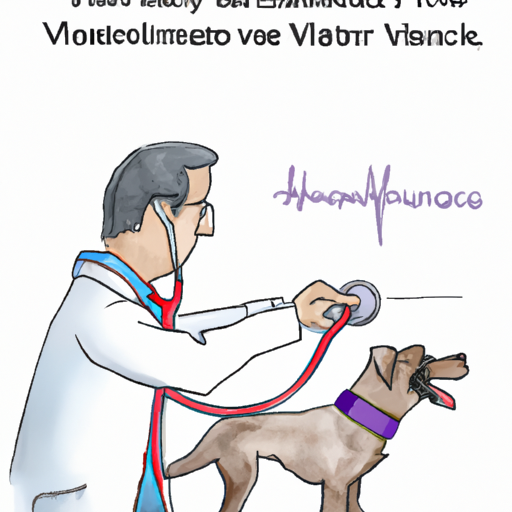Understanding your furry friend’s health is crucial to ensure a long, happy life. As a caregiver, you should be familiar with your dog’s normal heart rate.
H2: Understanding Your Dog’s Heart Rate
Just like humans, dogs have a normal resting heart rate that can dictate their overall health. But unlike us, a dog’s normal heart rate can vary significantly depending on factors like age, breed, and size. For instance, a larger breed such as a Great Dane will typically have a slower heart rate than a smaller breed like a Chihuahua.
You can check your dog’s heart rate by placing your hand on their chest near the elbow joint. Count the number of beats in 15 seconds and multiply by four to get the beats per minute (BPM).
H2: The Normal Heart Rate for Dogs
Now, let’s delve into what is considered a normal heart rate for dogs:
- Puppies (up to 1 year): 120-160 beats per minute
- Small to medium-sized breeds (30 pounds or less): 100-140 beats per minute
- Large breeds (over 30 pounds): 60-100 beats per minute
| Dog Size | Normal Heart Rate |
|---|---|
| Puppies (up to 1 year) | 120-160 BPM |
| Small to medium-sized breeds | 100-140 BPM |
| Large breeds | 60-100 BPM |
H2: When Heart Rate Becomes a Concern
While fluctuations in heart rate are normal during exercise or moments of anxiety, consistent deviation from the normal heart rate could be a sign of health issues. A heart rate that’s too slow could indicate hypothermia or a neurological problem, while a fast heart rate could be due to heat stroke, blood loss, or dehydration.
If you observe any drastic changes, it’s essential to consult your vet immediately.
H2: Improving Your Dog’s Cardiovascular Health
Maintaining your dog’s heart health is an essential part of their overall well-being. Here are some tips to ensure it:
- Regular exercise: Daily walks and play sessions can help maintain a healthy heart rate.
- Balanced diet: Ensure your dog gets the right nutrients to support heart health.
-
Regular check-ups: Visit your vet regularly for a heart check-up.
-
Daily exercise
- Balanced diet
- Regular vet visits
H2: Frequently Asked Questions
Q: My dog’s heart rate is slightly higher than the normal range. Should I be worried?
A: Slight fluctuations in heart rate are normal, especially during periods of activity or anxiety. If the elevated heart rate persists, consult a vet.
Q: How often should I check my dog’s heart rate?
A: Checking your dog’s heart rate once a month is generally sufficient unless your vet advises otherwise.
Q: Can diet affect my dog’s heart rate?
A: Yes, a balanced diet can contribute to a healthier heart and a normal heart rate.
To conclude, as a caregiver, knowing your dog’s normal heart rate and how it can vary allows you to monitor their health better. Remember, a healthy heart contributes to a happy, energetic, and long-lived dog!



